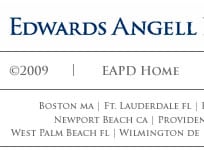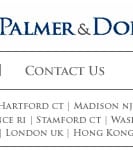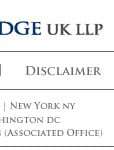
The Foreign Corrupt Practices Act and the Trend Towards Parallel Civil Litigation
There has been a noticeable and significant drift in the US towards parallel civil litigation arising out of violations of the Foreign Corrupt Practices Act 1977. Antonio Suarez-Martinez and Laurence Harris explore this increasing trend with particular focus on shareholder actions.
Introduction
The Foreign Corrupt Practices Act 1977 (FCPA) was introduced by the United States legislature to combat corrupt practices following the Watergate scandal. It "prohibits corrupt payments to foreign officials for the purpose of obtaining or keeping business"1. There has been a deliberate and systematic attempt by the US authorities in recent years to increase the number of FCPA prosecutions, for example, in 2002 the US Department of Justice (DoJ) and the US Securities and Exchange Commissioner (SEC) took enforcement action against two companies compared with 38 in 2007. 120 companies are presently the subject of open FCPA investigations.
In addition to the intensification of enforcement activity by the DoJ and the SEC over the last decade, there has been an increase in parallel civil litigation arising out of breaches of the FCPA. Although the FCPA does not give a private right of action, recently disgruntled shareholders, foreign governments and business partners have brought claims against the allegedly violating company. This article will focus primarily on the parallel private shareholder actions and consider whether it is likely that similar litigation will be seen in the English courts in the future.
The FCPA
The FCPA is widely regarded as the forerunner of and inspiration for much anti-corruption legislation worldwide, including the OECD Convention on Combating Bribery of Foreign Public Officials in International Business Transactions and the recent UK Anti-Bribery Bill. Despite the legislation being over 30 years old, it is still extremely effective at striking fear in companies and the individuals who control them who conduct business within the US. The combined $1.6 billion penalty imposed against Siemans Aktiengesellschaft for bribery and corruption of government officials to secure government contracts is a yardstick for the amounts that the US authorities can impose for violations of the FCPA.
Although significant penalties are being imposed by the US authorities against companies for violations of the FCPA, the financial implications of parallel shareholder litigation which are increasingly being initiated following an FCPA investigation should not be underestimated. In the case of Titan Inc., for example, Titan Inc. were forced to pay the DoJ and SEC over $40 million in fines for FCPA violations relating to improper payments to foreign officials in Africa and Asia and in addition paid approximately $61.5 million to settle related shareholder class actions.
Parellel Shareholder Litigation - A Route for Redress
Since the FCPA does not provide a private right of action, shareholders are pursuing claims for bribery allegations under alternative US legislation as either securities class actions filed by the company's shareholders or shareholder derivative lawsuits filed on behalf of the company itself. The DoJ accept in their "Lay-person's Guide to the FCPA" that the victims of the corrupt acts can rely on other causes of action to bring suits against both US and foreign companies in the US courts: "conduct that violates the anti-bribery provisions of the FCPA may also give rise to a private cause of action for treble damages under the Racketeer Influenced and Corrupt Organizations Act or to actions under federal or state laws". In a case involving Willbros Group Inc. (Willbros), for example, a shareholder class action was initiated in 2005 on the basis that the company had violated The Securities Exchange Act 1934 by producing misleading financial statements in order to increase the stock price of the company and assist in its corrupt practices. Willbros settled the shareholder class action for $10.5 million as well as being ordered to settle criminal and civil charges with the DoJ and SEC for $32.3 million for paying bribes to Nigerian, Bolivian and Ecuadorian officials in order to obtain and keep lucrative construction projects.
Frequently shareholder claims will involve allegations of breach of fiduciary duty or fraud. The Detroit Police and Fire Fighters pension fund brought a complaint in May 2009 against Halliburton and its former subsidiary Kellogg Brown and Root (KBR). The Plaintiff shareholders accused 32 present and former directors of Halliburton and KBR's Board of Directors of breaching their fiduciary duty by failing to prevent criminal activities which resulted in fines totalling $579 million being paid to the DoJ and SEC for FCPA violations. In the Plaintiff's petition they stated that: "Under the defendants' watch, and supposedly under their control and supervision, the companies were permitted to engage in conduct so notorious that the name 'Halliburtons' has become virtually synonymous with corruption". The corrupt activities related to the over-billing of services provided to the American forces in Iraq and the bribery of Nigerian officials to win lucrative contracts.
FCPA Investigations - The Catalyst for Shareholder Actions
Public disclosure of an FCPA investigation by the DoJ and/or SEC is certainly a stimulus for shareholders to bring parallel civil litigation. A shareholder will obviously seek to ensure that the company's profits are maximised, that goodwill is accumulated in the business name and that it is maintained. An FCPA investigation will have a detrimental affect on the share price of the company, reputation and any goodwill that has been built up by the company over the years. In the Willbros case the company's stock price fell by 30% when an FCPA investigation was announced. Similarly in Titan, not only was a proposed merger between Lockheed Corporation and Titan Inc. aborted in light of an FCPA investigation by the DoJ and SEC, but the company's market capitalisation fell from $1.68 billion to $934 million.
A shareholder action can therefore be a means for the members to distance themselves from the allegations and investigation of corruption and be seen by the world as a public condemnation of the company's conduct. It may also be a means through which to mitigate some of the negative publicity surrounding the investigation in order to limit the financial and reputational consequences for the company by showing that the shareholders will not tolerate the company's and/or the company directors' behaviour. Below we consider two shareholder actions each brought with varying degrees of success.
In the BAE Systems Plc (BAE) case, the City of Harper Woods Employee's Retirement System shareholders brought a derivative action in September 2007 on behalf of BAE against current and former board directors for breaching their fiduciary duties. They sought to recover losses in respect of $2 billion worth of bribes paid to Prince Bandar Bin Sultan in order to secure lucrative contracts. The lawsuit alleged that BAE's directors permitted illegal activities in contravention of the FCPA in order to enhance financial results. Relying on UK law, the Court dismissed the Plaintiff's claims at a preliminary stage for lack of standing. The US Court found that the rule in the English case of Foss v. Harbottle (1843) 67 ER 189, which permits shareholder derivative actions only in limited circumstances, disallowed the shareholders' suit. Under the Foss v. Harbottle rule, if the alleged director wrongdoing is capable of ratification by a simple majority of shareholders, a derivative action is not generally permissible. In this case the Court found that the key element of the Plaintiff's claims was the Defendants' failure to supervise and properly oversee the actions of the company, and that such actions were capable of ratification. In addition, the Court rejected the Plaintiff's argument that the rule was inapplicable because the Defendants' actions were either ultra vires, fraudulent, or involved self-dealing. By way of an aside, which is considered further below, the Court acknowledged that the UK Companies Act of 2006 changed the Foss v. Harbottle rule and established more liberal requirements for a derivative action, but held that the UK Companies Act did not have retroactive effect and therefore did not apply to the Defendants' conduct.
The more recent case involving FARO Technologies Inc. (FARO), however, shows that securities fraud action can produce a successful outcome for share/stockholders. The facts of FARO are that the purchasers of FARO stock brought an action against the company for allegedly misrepresenting its internal procedures by suggesting that they were adequate to protect the company against FCPA violations. In July 2008 FARO settled the claim brought by the purchasers for $6.875 million as well as paying the DoJ and SEC combined fines of $2.95 million. In respect of a shareholder derivative action,2 the Defendants (former and current directors of FARO) reached a settlement whereby FARO agreed, amongst other things, that it would in future abide by corporate governance measures including director independence, director education and the appointment of a new independent director.
Shareholders Actions - Tip of the Iceberg
There has not just been an increase in parallel shareholder and securities actions. FCPA prosecutions and settlements have also led to claims from third parties, such as competitors who have lost out on contracts due to bribes being paid by a company or even governments who have been overcharged by companies (who are seeking to claw back monies that have been paid as bribes to government officials to win government contracts).
The recent case involving Aluminum Bahrain provides an example of this. This was an action brought where a formal FCPA investigation had not been initiated. This serves as a warning to companies that victims may not simply wait for an FCPA investigation to bring a claim. Aluminum Bahrain B.S.C (Alba), a company owned by the Bahraini government filed a lawsuit against Alcoa and two individuals for allegedly overcharging raw materials over a fifteen year period and corruption of Bahraini government officials in order to obtain lucrative supply contracts. The action was based on alleged breaches under the Racketeer Influenced and Corrupt Organisations Act. In light of these actions, the US Courts stayed proceedings initiated by the foreign company following a request from the DoJ who wished to undertake a criminal FCPA investigation. A separate shareholder derivative lawsuit3 brought on behalf of Alcoa for breach of fiduciary duty, corporate waste, abuse of control and unjust enrichment has since been dismissed by Chief US District Judge Ambrose for lack of standing due to the shareholder's failure to make a pre-suit demand on the company's board of directors. Whilst the civil claim brought by Alba has stalled for the time being, as soon as the FCPA criminal investigation reaches a conclusion, and provided that conclusion results in a finding of guilt in respect of Alcoa, that civil claim will be revived in earnest.
The UK Perspective
Parallel litigation arising out of suspected corrupt activities is predominantly an American phenomenon. However, in light of the UK's recent Bribery Bill and Part 11 of the Companies Act 2006, it is fair to say that such parallel litigation may emerge in England. The Bribery Bill which is likely to come into force later this year intends to reform and modernise existing bribery laws and make them more consistent with international legislation including the FCPA. The Bribery Bill introduces a new corporate offence of negligently failing to prevent bribery, subject to a defence that the company has in place adequate procedures to prevent such bribery. Like the FCPA, the Bribery Bill effectively requires companies to put into practice, maintain and enforce anti-bribery policies. In line with the US experience, it is possible that where English companies are found guilty of corruption and to be in breach of anti-bribery policies, shareholders, companies and competitors will seek redress in the form of parallel litigation.
The suggestion that parallel shareholder litigation in particular may emerge in England is given more credence now that Part 11 (s. 260 – 264) of the Companies Act 2006 has come into force. Part 11 effectively widens the circumstances in which shareholders can bring derivative actions in the company's name to protect their interests and obtain a remedy on the company's behalf. An English shareholder is now able to bring a derivative claim following an actual or proposed act or omission involving negligence, default, breach of duty or breach of trust by a director or former director. Although such an action will only succeed where the shareholders have obtained permission from the court to proceed with their claim and have established a prima facie case against the company, this is a significant development which may embolden English shareholders to bring parallel litigation where corrupt activities are suspected.
Comment
The increase in parallel shareholder litigation in the US in the face of an FCPA investigation is a stark warning to companies who undertake corrupt activities. Companies should be alert to the fact that shareholders and other potential plaintiffs such as foreign countries or competitors may file claims even in the absence of a formal FCPA investigation. Shareholders are increasingly seeking to protect their investments by taking action against corrupt activities even though the FCPA does not provide a private right of action. A Bill entitled "The Foreign Business Prohibition Act 2008" introduced to Congress attempted to rectify this and give a limited private right of action under the FCPA for violations by foreign concerns that damage domestic businesses. Although this bill never became law it is an indication that the US legislature may in future move towards providing a private right of action. One expects similar trends to develop in England once the Bribery Bill is enacted..
1 Lay-Person's guide to the FCPA
http://usdoj.gov/criminal/fraud/docs/dojdocb.html
2 David Alverson v John Caldwell and other v Faro Technologies Inc Case No. 6:08-cv-45-ORL-22DAB
3 Hawaii Structural Ironworkers Pension Trust Fund derivatively on behalf of Alcoa Inc v Belda 08-0614
Contacts
The information in this newsletter is for general guidance only and is not intended to be a substitute for specific legal advice. If you would like any further information please contact:

Laurence Harris
Partner, Commercial Litigation - London
t: +44 (0) 20 7556 4445
e: LHarris@eapdlaw.com

Antonio Suarez-Martinez
Associate - London
t: +44 (0) 20 7556 4526
e: ASuarez-Martinez@eapdlaw.com









